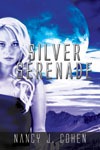Writing a thriller is so much more involved than ten tips, but the checklist below is a good start. You notice I used the word TIPS and not RULES. I hate rules. Think of these as talking points to chat about and explore in your own writing.
1.) Start with a BANG and Explain Later
• Start with the moment that changes the character’s life forever.
• Or throw the reader right into the middle of action.
• No backstory or introspection
• Stick with the action
• Be patient with dropping mystery hints & clues, thread thru plot later.
• Place the reader in the midst of it—using all their senses.
• Remember that your protagonist might be ducking gunfire or are in a dangerous situation. It’s all about action, reaction and pace.
2.) Alfred Hitchcock’s Definition of Suspense & Basics on Structure
I’m not a plotter, so this part won’t be about plotting.
Hitchcock believed suspense didn’t have much to do with fear, but was more the anticipation of something about to happen. When I read this, it was a HUGE epiphany for me. The idea changed how I thought about scene and chapter endings. In a recent work-in-progress, I kept the same words that I’d started the book with, but ended scenes and chapters with this idea of anticipation. It gave the book a different dynamic and enhanced the pace. Don’t be afraid to cut off a scene or a chapter in the middle of the action. Here are some examples:
• One of my chapter endings in NO ONE LIVES FOREVER (RT nominee Best Intrigue 2008) has my hero in the middle of a steamy jungle, handcuffed and on his knees with a gun pointed between his eyes. The last sentence of that chapter is – And that’s when he pulled the trigger.
• Another chapter ending in my next thriller EVIL WITHOUT A FACE has my bounty hunter woman blinded by the headlights of an oncoming SUV about to run her down in an alley. With only seconds to consider her options, she plants her feet and raises her Colt Python, aiming for the faceless driver behind the wheel. And the last line to the chapter is – Time to play chicken with six thousand pounds of steel.
• Don’t let readers put down your novel.
• Give the reader a sense of foreshadowing or plant the seed of a red herring to sustain the pace and tease them with things to come.
• And the teaser doesn’t always have to be a major calamity. It can be something as subtle as a person walking into a room. For example, if an author has built a growing mystery surrounding an individual, have everyone in a courtroom turn to see who is walking in, then stop the action. In the next chapter, the author carries the story forward, drawing it out so the reader must finish the next chapter too—and so on and so on.
• Short sentences (as well as short chapters, scenes, and paragraphs) adds tension.
• Switch between key scenes – back & forth with the action like is done in movies to build tension.
• Or tell the story from different points of view (POVs) to build momentum on action sequences.
• 9-Act Screenplay Structure – Most blockbuster movies use a plot structure like this. (Check out my website www.jordandane.com under the FOR WRITERS page to see a 9-Act outline as well as other handy articles from craft to promotion.) This 9-Act structure is similar to the Hero’s Journey. And once you become familiar with the plot structure, your mind will automatically think in terms of it when you’re working on future projects. I’m not a plotter but I saw potential in this structure.
3.) The concept of Enter Late and Leave Early (ELLE) – The “Law & Order” Concept
• ELLE – Enter Late, Leave Early maintains pace and leaves the reader wanting more.
• The TV show “Law & Order” is a good example
• ENTER LATE refers to starting a scene in the middle of the pertinent action, such as AT the crime scene staring down at the body, not the drive over in a car.
• LEAVE EARLY refers to an ending that foreshadows something or raises a question or creates more of a mystery, not showing the detectives driving back to the police station.
• Quick snippets of plot suggest pace/movement and a reader can fill in the gaps on what happened in between.
• This principle does not apply to dialogue. Don’t make the reader guess what your characters are talking about. Start at the beginning of the dialogue for clarity.
4.) Torture Your Characters – It’s Legal
• Torture can be deviously fun—on paper, that is.
• Make the reader understand why your character is worthy of being the star of your novel.
• Your characters have to rise to the occasion—even if they are an average Joe—and go up against insurmountable odds.
• And we’ve all heard the phrase “Write what you know.” It should be “Write what you fear…what you love…what you hate.” Writing what you fear conveys human emotion that will resonate with readers. Tapping into what makes you afraid will translate into a trigger for the reader as well. And this goes for other emotions too. Drawing on a reader’s emotions will pull them into the story.
5.) Weaving in the Threads of Clues – No Surprise Suspects or Miraculous Databases
• Pretty self-explanatory. We all laugh when one of the CSI shows can turn around DNA analysis in minutes or they have access to amazing databases that don’t exist that allows them to wrap up the show in five minutes.
• I read about the “RULE OF THREE” on a mystery loop and it made sense. If you want a hint or clue to sink in for a reader, you subtly weave it into your plot in three different ways and places within your book. The repetition reinforces the importance and plants a seed with the reader, but don’t telegraph it in a huge way. It’s a balancing game of subtlety.
6.) Layer the Conflict & Allow Your Hero/Heroine to Be the Star
• Put up roadblocks and heap on complications.
• Use internal and external conflicts as a driver.
• Give them emotional baggage that the reader can relate to.
• Force your characters out of their comfort zones. Make them do the one thing they would never do.
• Action by itself can be boring if you don’t add the right balance of the human struggle and emotion into a story.
7.) Ramp Up the Stakes & Make it Personal
In my release, EVIL WITHOUT A FACE, I start with a 17-year old girl being lured from home by an online predator pretending to be another young girl. You’ve heard this story before, but I catapult this troubled Alaskan family into a massive global conspiracy with the clock ticking. A tangle of unlikely heroes attacks this conspiracy from different angles and they converge in a fight for their lives.
• The conspiracy is far reaching and it’s deadly.
• And because one young girl is caught up in it, it’s personal.
In my debut book, NO ONE HEARD HER SCREAM (Publishers Weekly Best Book of 2008), my woman homicide detective was burdened by the abduction and murder of her younger sister and filtered every new investigation through her pain and guilt.
• She’s flawed and makes mistakes in her investigation of a cold case.
• Puts herself in the cross hairs of treacherous men – unable to be objective.
• Her emotions drive her to be heroic and also become a weakness that can get her killed.
8.) The Clock is Ticking – Then Shorten the Deadline
• Give your characters a deadline—a race against time—then shorten the timetable.
• Force your hero or heroine to make really tough decisions.
• Make them do the one thing they would NEVER do—with the clock ticking.
9.) Give the Reader a Big Payoff & Tie Up the Loose Ends
• No hype – give readers a big finish. Don’t disappoint them.
• Exceed their expectations – go over the top.
• Tie up all loose ends.
• And tie up the emotional journey too.
10.) Restore the World, but Don’t be Afraid if it’s a Different Place
• In a series, you have greater flexibility in how you choose to end your story.
• Happily Ever After (HEA) isn’t always necessary because you are writing a bigger story arc in the series. My books tend to read as standalones in plot, but the characters’ journeys continue and they grow with each book.
• I still like the idea of restoring the world—a certain amount of redemption—but it doesn’t have to be the same world.
• Crime affects people in a bad way, so they are forever changed. Don’t be afraid to show the aftermath.


 Nancy J. Cohen
Nancy J. Cohen![[image4.png]](https://killzoneblog.com/wp-content/uploads/2010/07/image4.png) It’s time for another Open Tuesday while our blogmate, Kathryn Lilley, is on medical hiatus. Bring us your questions, comments and discussions. If you have a question about writing, publishing or any other related topic, ask away in our comments section. We’ll do our best to get you an answer.
It’s time for another Open Tuesday while our blogmate, Kathryn Lilley, is on medical hiatus. Bring us your questions, comments and discussions. If you have a question about writing, publishing or any other related topic, ask away in our comments section. We’ll do our best to get you an answer.

